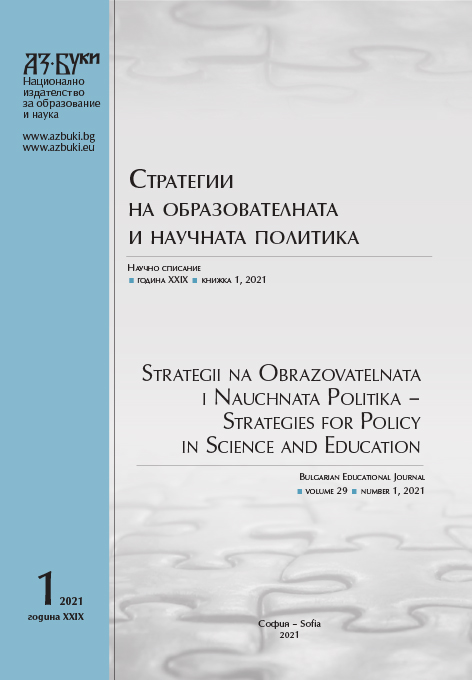Methodology of Safety and Quality of Life on the Basis of Noospheric Education System Formation
Methodology of Safety and Quality of Life on the Basis of Noospheric Education System Formation
Author(s): Nataliia Bakhmat, Natalia Ridei, NATALIIA TYTOVA, Vladyslava Liubarets, OKSANA KATSEROSubject(s): Social Sciences, Education, Sociology, School education, Higher Education , Educational Psychology, History and theory of sociology, Evaluation research, Sociology of the arts, business, education, Economic development, Sociology of Education
Published by: Национално издателство за образование и наука „Аз-буки“
Keywords: noosphere development, safety and quality of life; human ecology; ecological and educational policy; global ecological challenges; socio-ecological comfort of environment
Summary/Abstract: Scientific (scientific and technical) multidisciplinary project activities for the formation of methodology of security and quality of life through the development of the noospheric education system require studying, developing, implementing and testing multivariate models and characteristics of modernized training system for specialists and professionals of a new kind, which are able to confront the global environmental challenges. Such training system provides the implementation of the system administration methodology of multivariate noosphere-oriented training models (based on the principles of safety and quality of life), retraining, advanced training and training of kindergarten teacher –school teacher – university teacher – mentor – scientist – person engaged in study process. The study takes into account the next principles and approaches:1) noospheric, futuristic, constructive-problematic, situational innovative, energetic and goal-oriented, normative-axiological, culturological, system approach, information approach, synergetic, integrated, problem scenario approach, structural-functional, genetic and morphological, socio-cultural approach etc. as the scientific knowledge of the system state and development; 2) integrated methodology functions (critical and expert, criteria and indicative orientation(targeted), analytically relevant such as heuristic, instrumental, technological, predictive, philosophical, creative etc.) aimed at the prediction, remediation and prevention of environmental risks and civilizational development dangers. These functions include educational and research modules of noospherology, the system administration methodology, equal choice (safety and quality of life), forecasting and modeling positive psycho-emotional development; 3) development of online workshop network to prepare job seekers (holders of educational and academic degrees) out of all stakeholder categories; 4) integration of the multivariate semantics of the higher education institutions and scientific institutions in the fields of ecology, environmental protection and balanced nature management, governance and public administration, pedagogy, contributing to the institutional modernization of cross-border collaboration at the global, regional, national and institutional levels, as well as administrative management of the portability of scientific methodical and information-analytical network of logistics, based on the system of noospheric education on the principles of autonomy, accessibility, continuity, academic mobility, ethics and integrity, health of the nation in the consortium of universities for the sake of security guarantees and the quality of life in biosocial dimension. The modern methodological directions of safety and quality of life research are formulated in the global dimension. The current state of the problem is also characterized in the research. The target component of the actualized scientific problem is concretized due to contradictions, methods and means of research. The novelty and structure of the sphere of scientific research are determined. The author's interpretation presents the definition of “methodology of safety and quality of life on the basis of noosphere education”, highlights the stages of research, proposes a hypothesis of scientific direction, its novelty and provides the conclusions to achieve the benefits of its relevance.
Journal: Стратегии на образователната и научната политика
- Issue Year: 29/2021
- Issue No: 1
- Page Range: 82-98
- Page Count: 17
- Language: English
- Content File-PDF

